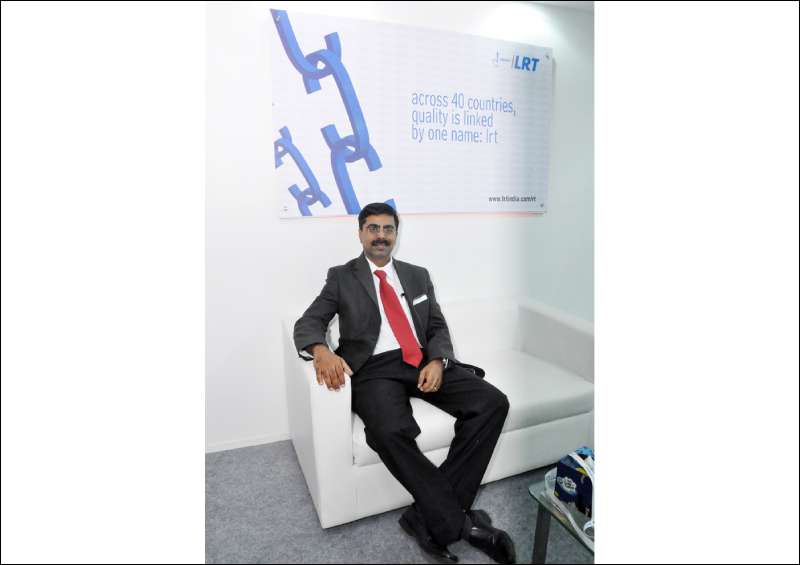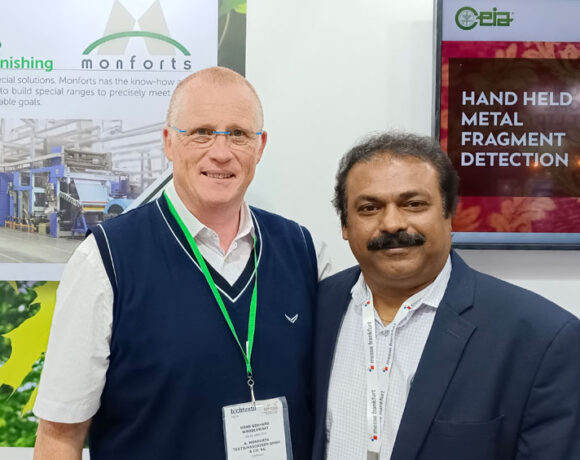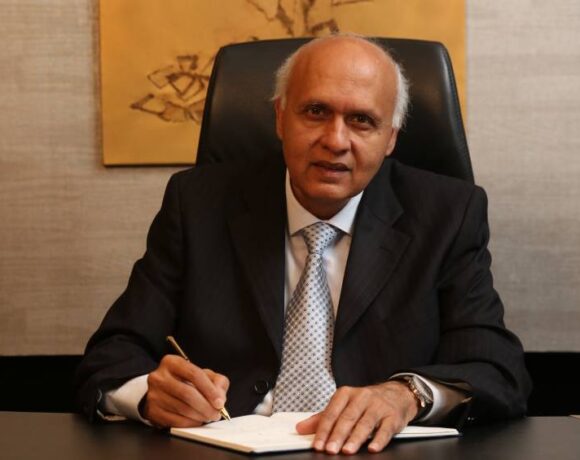LRT Largest Worldwide Manufacturer of Ring Travellers

Lakshmi Ring Travellers (LRT) which manufactures 4,500 million pieces of Ring Travellers per annum is the largest manufacturer of Ring Travellers in the world, catering to requirements of over 4,500 spinning mills worldwide.
Additionally, LRT has a massive 74.3 percent market share in the Indian textile industry and over 40 percent market share in overseas markets.
LRT is the number one player in major textile hubs like Bangladesh, Indonesia, Turkey, etc and exports to over 45 countries or wherever there is a spinning mill. In China, LRT has the largest market share, when it comes to imported Ring Travellers.
LRT Group was started in 1974 by LMW founders and will be celebrating its Golden Jubilee year next year. When the company was started, it was known as Lakshmi Bracker, as there was a collaboration with the Swiss company at that time to manufacture Ring Travellers.
“In 1999, since we had ambitions to become a global player, we exited the collaboration which has helped us now become global leaders in Ring Travellers,” Jagan Mohan Balaji, Vice President at LRT Group told Textile Insights.
The first unit to manufacture Ring Travellers was set up in Hosur near Bengaluru and over the years the Group has added several other verticals like a Steel foundry, Machining Unit, a Surface Finishing Unit and also a CNC Profile Cutting Machines production facility.
Since starting the Ring Travellers plant in Hosur, the company began increasing its market share in the Indian textile industry. “I was informed that in the 1990’s, we had a heavy demand for our Ring Travellers and mills used to line up in a queue from 6.30 AM to buy Ring Travellers,” Balaji said proudly.
To meet the increase in demand, the Group set up a second unit in Annamalai, near Pollachi in Tamil Nadu in 1995. In 2013, the Group decided to concentrate all its manufacturing in and around Coimbatore, so they set up another big facility in Coimbatore in 2013, and shifted the Hosur plant and machinery to Coimbatore.
LRT’s USP is to provide total Ring Travellers solutions and so is a one stop solution provider for all varieties and types of Ring Travellers, which means they have a complete range for all spindle speeds, any yarn material and also all types of rings.
LRT manufactures more than 2,000 varieties of Ring Travellers in different profiles, Traveller numbers, finishes, cross section and flange width, C shaped and J shaped profiles and also special Travellers for Orbit Rings.
“Along with this, we also provide technical support and complete guidance on trouble shooting and choosing the correct Ring Travellers or on how to increase production and improve yarn quality. We do not charge anything for these services. By offering these additional services we have gained loyalty of our customers, while also increasing our customer base,” he shared.
LRT has agents across the world, who maintain a sufficient amount of stocks due to which, LRT is able to supply Travellers from their agents or the manufacturing units within 24 hours to 48 hours or maximum four days, if the distance is more, in most of the markets.
“During Covid-19 lockdowns, a few countries were under lockdown for shorter periods and a few for longer periods. But since our agents keep adequate stocks, we were able to cater to the requirements of mills without delay in all countries,” Mr Balaji explained.
R&D at LRT is a continuous process as they believe in continuous innovations and so keep launching new products from time to time. During ITMA, LRT launched new Traveller insertion tools for Ring frames fitted with Spindle Monitoring Systems.
At ITMA, the LRT stall witnessed visitors coming to their stall from across the world, including from major markets like Bangladesh, China, Vietnam, Indonesia, India and also smaller markets like Honduras or Nicaragua which has just few spinning mills and also from developed countries in Europe like Spain, Italy and Portugal.
“Currently the Indian textile industry is going through a challenging phase. But, I am optimistic of the future as India is the ‘Spinning Capital’ of the world. With production moving out of China, India will be a major beneficiary, atleast in spinning,” he articulated.
Mr Balaji attributes the challenges facing the Indian textile industry to the Russia Ukraine war, reduced demand of apparels globally and many developed countries including Germany, USA and Japan going through a slowdown.
Sharing a few important statistics, Balaji said, “Today, there are 200 million installed spindles globally, but actual requirement is of just 150-160 million spindles. India has around 48 million spindles, while China has around 100 million spindles, but their spindle utilisation is just around 60 million spindles currently.”















